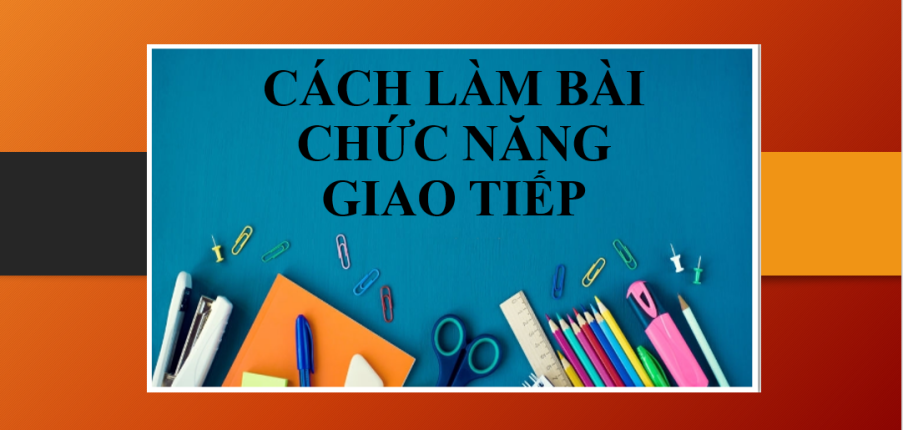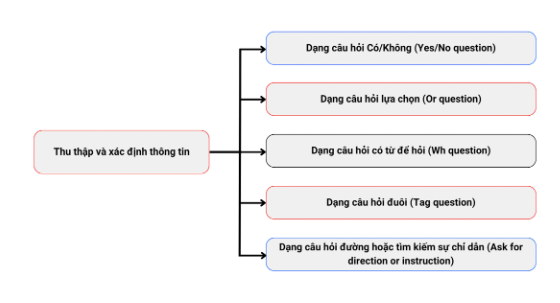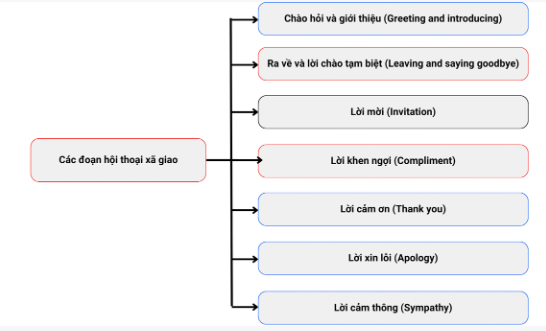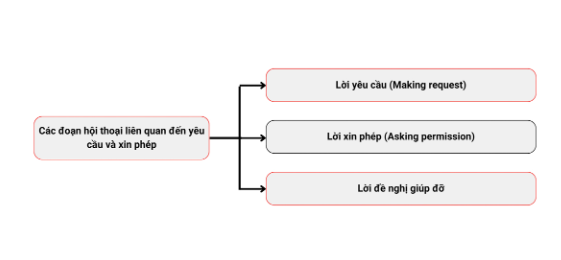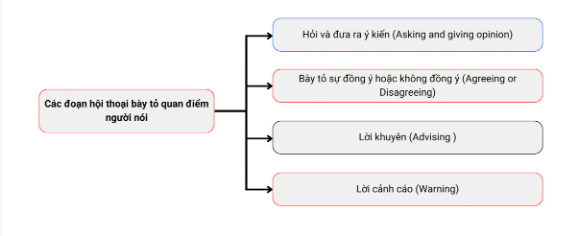Question 11: Tom is inviting Linda to his birthday party.
Tom: “Would you like to come to my birthday party next week?"
Linda: “______’’
A. Why not? B. Yes, I'd love to. C. I don’t think so. D. No, I’d love to.
Question 12: Tom: “Would you like to watch a water puppet show with me?”
Jerry: “______.”
A. It might be a good idea to bet
B. Do you think I would
C. I'm afraid I can't as I have a lot of homework
D. There's nothing you don't know about water puppet
Question 13: Binh is inviting Nam to join the football club.
Binh: “I know you are very good at playing football. Would you like to join our club?”
Nam: “______”
A. Yes. I am very busy.
B. Yeah. Good idea. I'd love to.
C. What a good friend you are!
D. What do you think?
Question 14: Linda: "Go to the party on Sunday?"
John: “______.”
A. You bet
B. Lucky you
C. I prefer cuisine to speech
D. You know the party well
Question 15: Two students are talking with each other about the weekend picnic:
Student 1: "Can you come with us?"
Student 2: “______.”
A. Whether my parents will let me or not is the question.
B. The teacher is asking us to submit the paper next week.
C. The weather is so nice for a picnic.
D. Well, I thought it was yesterday.
Question 16: Mark: “We've passed the first round. Of the English presentation competition"
Alex: “______”
A. Congratulations!
B. Do you?
C. It's nice of you to say so.
D. That's a good idea.
Question 17: Jenny: “Thanks for the nice gift you bought to us!”
Peter: “______”
A. All right. Do you know how much it costs?
B. Not at all, don't mention it.
C. Actually speaking, I myself don't like it.
D. Welcome! it's very nice of you.
Question 18: Amy: "Would you mind sending those flowers to Mrs. Brown?""
Mark: “______”
A. He wouldn't mind.
B. I would if I were you.
C. No, I can handle it myself.
D. Sure, I'll do it now.
Question 19: Mary: “Congratulations! You did a great job!”
Tom“______
A. It's my pleasure.
B. You're welcome.
C. It's nice of you to say so.
D. That's OK.
Question 20: - Ann“Would you like some spaghetti?”
- Mary“______ I'm full.”
A. Yes, please.
B. No, thanks.
C. Yes, I would.
D. No, I wouldn't.
Đáp án:
1. A
2. C
3. B
4. A
5. A
6. A
7. C
8. C
9. C
10. D
11. B
12. C
13. B
14. A
15. A
16. B
17. D
18. C
B
EX5: Mark the letter A, B, C or D on your answer sheet to indicate the correct answer to each of the following questions.
Question 1: How many pages ______ up to now?
A. did you read B. have you read C. will you read D. do you read
Question 2: ___we arrived at the hotel when it rained.
A. Not only had B. Little had C. Hardly had D. No sooner had
Question 3: She asked me___my homework before leaving home.
A. to finish B. finished C. finish D. finishing
Question 4: He was the first person ____ this technology to produce wine.
A. apply B. applied C. applying D. to apply
Question 5: My father looks so upset. I guess he____something terrible.
A. must have experienced B. should have experienced C. must experience D. can have experienced
Question 6: Is it necessary that John ___ here next Monday?
A. came B. to come C. come D. comes
Question 7: Not only___the exam with a high score but he also received a full scholarship.
A. did he pass B. he has passed C. has he passed D.does he pass
Question 8: The doctor advised my father___ late.
A. not staying up B. not stay up C. not to stay up D. not stayed up
Question 9: ___any employee be ill, you must inform the HR department immediately.
A. If B. Should C. Will D. Were
Question 10: Let’s go to the movie,___?
A. don’t we B. will we C. shall we D. do we
EX6: Mark the letter A, B, C, or D on your answer sheet to indicate the sentence that is closest in meaning to each of the following questions.
Question 11: “We will go on a picnic as long as the weather is nice”
A. We’ll go on a picnic if the weather is nice.
B. We had better go on a picnic unless the weather is nice.
C. We’ll go on a picnic immediately the weather is good.
D. The weather is nice when we go on a picnic.
Question 12: “Where did you go last night?” John said.
A. John wanted to know where I went the night before.
B. John asked me where I had gone the previous night.
C. John asked me where I had gone the following night.
D. John wanted to know where I went last night.
Question 13: The coffee is not strong. It can’t help me stay awake.
A. The coffee is very strong but it can’t help me stay awake.
B. I am awake because the coffee is not strong.
C. The coffee is not strong enough to help me stay awake.
D. The coffee is very strong so that it can’t help me stay awake.
Question 14: Because the demand for beer was very high last month, its price increased much.
A. It was not until last month that the demand for beer was very high.
B. Last month, the price for beer didn’t increase despite the high demand.
C. Although the demand for beer was high, its price increased much.
D. The demand for beer was so high that its price increased much last month.
Question 15: “Would you like some coffee?” Jane asked.
A. Jane offered me some coffee.
B. Jane asked me would I like some coffee.
C. Jane forced me to drink more coffee.
D. Jane asked me if I want more coffee.
Question 16: My brother didn’t pay attention to what I said to him.
A. My brother didn’t hear me clearly.
B. My brother took no notice of my words.'
C. My brother can’t hear what I am saying to him.
D. My brother didn’t want to talk to me.
Question 17: The last time I met Jim was 5 years ago.
A. I haven’t met Jim for 5 years.
B. I haven’t met Jim since 5 years.
C. Jim didn’t meet me for 5 years.
D. We didn’t meet each other since 5 years ago.
Question 18: This is the first time I have tried this food.
A. I had never tried this food.
B. I have ever tried this food.
C. I have never tried this food before.
D. I didn’t try this food until today.
Question 19: Mary is too weak to lift this box.
A. Mary can’t lift this box because she is strong.
B. Mary shouldn’t have lifted this box because of her weakness.
C, Mary could lift this box while she is so weak
D. So weak is Mary that she can’t lift this box.
Question 20: “I stole your laptop yesterday”. The little boy said to the woman.
A. The little boy admitted stealing the woman’s laptop.
B. The little boy denied stealing the woman’s laptop.
C. The woman thanked the boy for stealing her laptop.
D. The woman accused the boy of stealing her laptop.
EX7: Mark the letter A, B, C, or D on your answer sheet to indicate the underlined part that needs correction in each of the following questions:
Question 21: Most living organisms depend largely on the surrounding environment for the satisfaction of its needs.
A. most B. depend C. satisfaction D. its
Question 22: Either Jane or Lucy are going to the theater tonight.
A. either B. or C. are D. tonight
Question 23: My teacher said me that I would receive an important letter the following day.
A. said me B. would C. an D. the following day
Question 24: Although he has a well-paid job, but he doesn’t feel happy.
A. although B. well-paid C. but D. doesn’t
Question 25: Don't forget to bring the key before leave the house.
A. don’t B. to bring C. before D. leave
Question 26: It was not until midnight when my brother came home.
A. it B. until C. when D. came
Question 27: Because fireworks are very dangerous, most countries have laws preventing their citizens to sell them.
A. because B. are C. preventing D. to sell
Question 28: He lost his confidence and believe in his own ability when he lost his job.
A. lost B. believe C. own D. when
Question 29: I used to staying up late when I was a little girl.
A. used B. staying C. when D. little
Question 30: When I came back home, I realized that my laptop had been disappeared.
A. when B. came C. realized D. had been
Question 31: Seldom did my classmates and I went on a picnic together.
A. seldom B. did C. went D. together
Question 32: You should stop to smoke if you want to have good health.
A. should B. to smoke C. have D. health
Question 33: My sister told me that she had met her old teacher yesterday.
A. told B. that C. had met D. yesterday
Question 34: Prediction of tsunamis remains inaccurately, causing much concern among the residents.
A. prediction B. inaccurate C. causing D. among
Question 35: Every student in this class are very good at Spanish.
A. every B. student C. are D. at
EX8: Mark the letter A, B, C or D on your answer sheet to indicate the correct answer to each of the following questions.
Question 36: The woman _______ her bicycle outside hasn’t come back for it yet.
A. who left
B. whom she left
C. whose
D. that
Question 37: Peter refused ___ part in the musical performance since he was sick.
A. taking
B. to take
C. taken
D. take
Question 38: Mary would prefer ______ books rather than go to the cinema.
A. to read
B. reading
C. read
D. have read
Question 39: If I had listened to my mom in the first place,___in trouble right now.
A. I won’t be
B. I am not
C. I wouldn’t be
D. I wouldn’t have been
Question 40: _____ , he couldn’t move this sofa.
A. Strong as John was
B. Strong as was John
C. As John was strong
D. As strong John was
Question 41: My brother could spend hours ___video games.
A. to play
B. played
C. to playing
D. playing
Question 42: But for your help, I ___ the exam.
A. hadn’t passed
B. didn’t pass
C. wouldn't have passed
D. would pass
Question 43: Professor Lumix recommended that I___in biology.
A. would major
B. to major
C. major
D. to majoring
Question 44: The woman who was driving the car would not admit that she had been at fault, and___
A. neither had the other driver
B. neither would the other driver
C. the other driver neither
D. neither the other driver
Question 45: On no account___in the company be used for personal purposes.
A. should the photocopy machines
B. the photocopy machines
C. the photocopy machines should
D. does the photocopy machines
Question 46: Jack blamed me ___not explaining the lesson to him carefully.
A. on
B. at
C. about
D. for
Question 47: By the year 2030, a lot of people currently employed ___their jobs.
A. will be losing
B. lost
C. are losing
D. will have lost
Question 48: Mr. John seldom drinks coffee,___?
A. does he
B. doesn’t he
C. don’t he
D. will he
Question 49: Don’t waste time _______ for a cheap hotel because they are all about the same price in this area.
A. look
B. looking
C. have looked
D. to look
Question 50: ___ she would be there, he would have agreed to come.
A. Had Mark known
B. Mark had known
C. Had known Mark
D. If Mark knows
Đáp án:
Question 1: (Tính đến thời điểm hiện tại bạn đã đọc được bao nhiêu trang rồi?)
Đáp án: B
Giải thích: Do trong câu hỏi có chứa cụm từ “up to now (cho tới nay)” là dấu hiệu nhận biết của thì hiện tại hoàn thành nên đáp án đúng là đáp án B.
Một số dấu hiệu nhận biết khác của thì hiện tại hoàn thành: yet, already, just, for + khoảng thời gian, since+ mốc thời gian, so far, recently, up to the present…
Question 2: (Chúng tôi vừa mới tới khách sạn thì trời đổ mưa)
Đáp án C
Giải thích: Trong tiếng Anh, khi muốn ám chỉ một sự việc nào đó vừa mới xảy ra thì một sự việc khác xảy đến, thí sinh thường gặp 2 cấu trúc mang nghĩa tương tự nhau như sau:
No sooner + had + S+ V3/ed + than + Clause = Hardly + had + S+ V3/ed + when + Clause
Do trong đề bài chứa từ “when” đứng trước clause nên đáp án đúng là đáp án C.
Question 3: (Cô ấy yêu cầu tôi hoàn thành bài tập trước khi rời khỏi nhà.)
Đáp án A
Giải thích: cấu trúc “ask somebody to do something”: yêu cầu ai đó làm điều gì đó.
Question 4: (Anh ta là người đầu tiên ứng dụng công nghệ này vào việc sản xuất rượu.)
Đáp án D
Giải thích: cấu trúc “ S + be + the + first/second/last… + N + to Vo ”: …đầu tiên/thứ hai/cuối cùng… làm điều gì đó.
Question 5: ( Cha tôi trông rất buồn bực. Ông ấy chắc hẳn đã trải qua điều gì đó khủng khiếp lắm.)
Đáp án A
Giải thích:
Xét cách dùng của lần lượt các cấu trúc có trong đáp án như sau:
must + Vo: bắt buộc phải làm gì (trong hiện tại)
should + have + V3/ed: đáng lẽ đã nên làm điều gì đó (diễn tả sự nuối tiếc vì đã không làm điều gì trong quá khứ)
must + have + V3/ed: chắc hẳn điều gì đã xảy ra (diễn tả sự suy đoán về sự việc trong quá khứ)
Như vậy, do đề bài ám chỉ sự suy đoán nên đáp án cần chọn là đáp án A.
Question 6: ( John có cần thiết đến đây vào thứ Hai tới không?)
Đáp án C
Giải thích: Do trong đề bài xuất hiện tính từ “necessary”, là một trong những tính từ thường đi với cấu trúc câu giả định
“S+ be + adj (advisable/important/necessary/essential…)+ that + S + Vo” nên động từ “come” trong trường hợp này được dùng ở thể nguyên mẫu.
Question 7: (Anh ấy không chỉ vượt qua kỳ thi với điểm số cao mà còn đạt học bổng toàn phần.)
Đáp án A
Giải thích: Áp dụng cấu trúc đảo ngữ “ Not only + trợ động từ/model verb/động từ tobe + S + V + but + S + also + V” và xét việc động từ “received” trong đề được chia ở thì quá khứ nên phía trước được đảo ngữ với trợ động từ “did”.
Question 8: (Bác sĩ khuyên cha tôi không thức khuya.)
Đáp án C
Giải thích: áp dụng cấu trúc “advise somebody + (not) + to do something”: khuyên ai (không) nên làm gì.
Question 9: (Nếu có bất kỳ nhân viên nào bị bệnh, bạn phải thông báo với phòng nhân sự ngay lập tức.)
Đáp án B
Giải thích
Áp dụng cấu trúc đảo ngữ câu điều kiện loại 1: Should + S + Vo, S + will/may/can+ Vo
Question 10: (Chúng ta hãy đi xem phim nhé)
Đáp án C
Giải thích: cáu trúc câu hỏi đuôi “Let's + động từ nguyên thể (khẳng định), shall we?" được sử dụng để mời hoặc đề nghị một hành động chung.
Question 11: (Miễn thời tiết tốt, chúng ta sẽ đi dã ngoại.)
Đáp án A
Giải thích: Cấu trúc “S+ V+ as long as + S+V” tương đương với cấu trúc câu điều kiện “If S+ V, S+ V”
Question 12: (“Bạn đã đi đâu đêm qua?” John hỏi.)
Đáp án B
Giải thích: Khi chuyển sang câu tường thuật, động từ trong câu gốc sẽ phải lùi thì, vì câu gốc sử dụng thì quá khứ nên khi tường thuật lại sẽ được chuyển đổi thành thì quá khứ hoàn thành (where did you go → where you had gone), đồng thời “last night → the previous night”.
Question 13: (Cà phê không mạnh lắm. Nó không thể giúp tôi tỉnh táo.)
Đáp án C
Giải thích: dịch nghĩa chỉ có đáp án C phù hợp (Cà phê không đủ mạnh để giúp tôi tỉnh táo)
Cấu trúc: S + be + (not) + adj + enough + (for somebody) + to Vo
Question 14: (Bởi vì nhu cầu bia rất cao tháng rồi, giá của nó đã tăng lên rất nhiều.)
Đáp án D
Giải thích: dịch nghĩa chỉ có đáp án D phù hợp (Nhu cầu bia cao đến nỗi giá của nó đã tăng lên rất nhiều tháng rồi.)
Cấu trúc: S + be + so + adj + that + Clause (…đến nỗi mà…)
Question 15: (“Bạn có muốn một ít cà phê không?” Jane hỏi.)
Đáp án A
Giải thích: vì “Would you like” là một dạng lời mời nên khi chuyển sang câu tường thuật sẽ sử dụng động từ “offer” với cấu trúc “ S+ offered + somebody + to Vo/Noun”
Question 16 (Em trai tôi không chú ý điều tôi nói với em ấy.)
Đáp án B
Giải thích: do cấu trúc “take notice of something” = cấu trúc “pay attention to something” và các đáp án còn lại không phù hợp nghĩa.
Question 17 (Lần cuối tôi gặp Jim là cách nay 5 năm.)
Đáp án A
Tôi đã không gặp Jim khoảng 5 năm rồi.
Giải thích: cấu trúc “ The last time S+ V2/ed + O + was + time + ago = S + haven’t + V3/ed + O + for + time”
Question 18 (Đây là lần đầu tôi thử món ăn này.)
Đáp án C
Giải thích: vì cấu trúc “This is the first time+ S + have + V3/ed + O = S + have + never + V3/ed + O + before” nên đáp án đúng là C (Tôi chưa bao giờ thử món này trước đây.)
Question 19 (Mary quá yếu để nâng chiếc hộp này)
Đáp án D
Giải thích: Xét cấu trúc S+ be + too + adj + to Vo (quá… để làm gì) = S + be + so + adj + that + clause = So + adj + be + S + that + clause (hình thức đảo ngữ của cấu trúc so…that) và các đáp án khác có nghĩa không phù hợp nên D là đáp án đúng.
Question 20 (“Tôi đã lấy cắp chiếc laptop”. Cậu bé nói với người phụ nữ)
Đáp án A
Giải thích: dựa vào nghĩa thì chỉ có câu A mang nghĩa tương đồng với đề bài (cấu trúc admit + Ving: thừa nhận làm điều gì). Một số cấu trúc cần lưu ý trong các đáp án còn lại:
-
deny + Ving: từ chối làm gì
-
accuse sb of Ving: buộc tội ai làm gì
-
thank sb for Ving: cám ơn ai vì đã làm gì
Question 21 (Hầu hết các sinh vật sống phụ thuộc lớn vào môi trường xung quanh để đáp ứng nhu cầu của chúng.)
Đáp án D
Giải thích: do living organisms là danh từ số nhiều nên cần sử dụng đại từ “their”, trong trường hợp này, "their needs" để đề cập đến nhu cầu của các sinh vật sống nói chung chứ không phải “its”.
Question 22 (Cả Jane và Lucy đều sẽ đi xem kịch tối nay.)
Đáp án: C
Giải thích: Khi một câu có cấu trúc "either... or..." được sử dụng để kết hợp hai danh từ đơn thì động từ phải phù hợp với danh từ gần nhất. Trong trường hợp này, danh từ gần nhất là "Lucy", là một danh từ số ít nên động từ chính phải là "is" (ở thể số ít) chứ không phải “are”.
Question 23 (Thầy tôi bảo với tôi rằng tôi sẽ nhận được một lá thư quan trọng vào ngày mai.)
Đáp án A
Giải thích: trong tiếng Anh, không có cách dùng “say somebody”, trong trường hợp này “said me” nên được đổi thành “told me” để diễn đạt ý nghĩa đúng.
Question 24 (Mặc dù anh ấy có công việc lương cao, anh ấy không cảm thấy vui.)
Đáp án C
Giải thích: "although" đã mang nghĩa tương phản nên việc sử dụng "but" sau đó tạo ra sự lặp lại không cần thiết và sai ngữ pháp.
Question 25 (Đừng quên mang theo chìa khóa trước khi rời khỏi nhà.)
Đáp án D
Giải thích: sau before cần sử dụng động từ dạng Ving (leaving) nên việc dùng “leave” trong trường hợp này là sai ngữ pháp.
Question 26 ( Mãi đến giữa đêm thì anh tôi mới về nhà.)
Đáp án C
Giải thích: cấu trúc “It was not until….that + Clause” nên từ “when” trong trường hợp này không thích hợp.
Question 27 (Bởi vì pháo hoa rất nguy hiểm, hầu hết các quốc gia có luật để ngăn cấm công dân của họ bán chúng.)
Đáp án D
Giải thích: cấu trúc "prevent + sb + from + Ving" để diễn đạt ý nghĩa ngăn chặn ai làm một hành động nào đó. Do đó, chúng ta sử dụng "from selling" chứ không dùng “to sell”.
Question 28 (Anh ấy đã mất sự tự tin và niềm tin vào khả năng của mình khi mất công việc.)
Đáp án B
Giải thích: dùng động từ “believe” trong câu không phù hợp, do phía trước có danh từ “confidence” và sự xuất hiện của từ “and” nên dạng từ ở vị trí này cũng phải là danh từ (belief).
Question 29 (Tôi đã từng thức khuya khi còn là một cô bé)
Đáp án B
Giải thích: cấu trúc “used to + Vo” dùng để diễn tả một hành động đã từng làm trong quá khứ.
Question 30 (Khi tôi về nhà, tôi nhận ra laptop của mình đã biến mất)
Đáp án D
Giải thích: động từ “disappear” không thể chia ở dạng bị động nên cách viết đúng là “had disappeared”
Question 31 (Hiếm khi bạn cùng lớp và tôi đi dã ngoại cùng nhau.)
Đáp án C
Giải thích: do đề bài sử dụng cấu trúc đảo ngữ “ Seldom + trợ động từ + S + Vo” nên động từ “went” trong trường hợp này phải ở dạng nguyên mẫu là “go” thì mới dúng ngữ pháp.
Question 32 (Bạn nên ngừng hút thuốc nếu muốn có sức khỏe tốt.)
Đáp án B
Giải thích: cấu trúc “stop + Ving” (ngừng làm điều gì đó)
Question 33 (Chị gái tôi nói với tôi rằng cô ấy đã gặp lại giáo viên cũ của mình vào ngày hôm trước.)
Đáp án D
Giải thích: do đề bài là một câu tường thuật nên từ yesterday phải được chuyển thành “the previous day”.
Question 34 (Dự đoán về sóng thần vẫn không được chính xác, gây nhiều lo lắng cho cư dân.)
Đáp án B
Giải thích: do “remain+ adj” nên trạng từ “inaccurately” không thể dùng trong trường hợp này mà nên thay thế bằng tính từ “inaccurate”.
Question 35 (Mỗi học sinh trong lớp này đều giỏi tiếng Tây Ban Nha.)
Đáp án C
Giải thích: động từ "are" không phù hợp với danh từ số ít "every student", trong trường hợp này cần dùng động từ số ít "is".
Question 36 (Người phụ nữ bỏ lại xe đạp của mình bên ngoài vẫn chưa quay lại lấy nó.”
Đáp án A
Giải thích: trong trường hợp này, mệnh đề quan hệ “who” để thay thế cho danh từ chỉ người ( the woman) đóng vai trò là chủ ngữ trong mệnh đề quan hệ.
Question 37 (Peter từ chối tham gia buổi diễn văn nghệ vì anh ấy bị bệnh.)
Đáp án B
Giải thích: cấu trúc “refuse + to Vo” được dùng để ám chỉ hành động từ chối làm điều gì đó.
Question 38 (Mary thích đọc sách hơn là đi xem phim.)
Đáp án A
Giải thích: dựa trên cấu trúc “would prefer to do sth rather than do sth” với nghĩa “thích làm điều gì hơn làm gì” thì đáp án A (to read) là đáp án chính xác.
Question 39 (Nếu tôi nghe lời mẹ từ đầu thì tôi đã không gặp rắc rối bây giờ.)
Đáp án C
Giải thích: đề bài đang sử dụng câu điều kiện hỗn hợp 2 và 3 để diễn tả hành động trong quá khứ nhưng kết quả trái với hiện tại. Cấu trúc “ If S + had + V3/ed, S + would/could + (not) + Vo”.
Question 40 (Mạnh như John mà không thể di chuyển cái sofa.)
Đáp án A
Giải thích: áp dụng cấu trúc “adj/adv + as + S + V: mặc dù…” thì đáp án đúng là đáp án A.
Question 41 (Em trai tôi có thể dành hàng giờ chơi game)
Đáp án D
Giải thích: áp dụng “cấu trúc spend + time + Ving: dành thời gian làm điều gì đó.”
Question 42 (Không có sự giúp đỡ của bạn, tôi không thể vượt qua kỳ thi.)
Đáp án C
Giải thích: đề bài áp dụng cấu trúc “But for + N/V-ing, S + would/could/might/ +(not).… + have + V3/ed” với nghĩa điều gì đó có thể đã xảy ra nếu không có sự xuất hiện của một sự việc nào đó.
Question 43 (Giáo sư Lumix đã khuyên tôi nên học chuyên ngành sinh học.)
Đáp án C
Giải thích: áp dụng kiến thức về cấu trúc câu giả định “S1 + verb (recommend/propose/insist/suggest…)+ that + S2+ [động từ ở dạng nguyên mẫu]”
Question 44 (Người phụ nữ lái xe hơi không thừa nhận cô ta gây ra lỗi và người tài xế kia cũng vậy.)
Đáp án B
Giải thích: áp dụng cấu trúc “Neither + trợ động từ/to be + S: cũng không…“, một cấu trúc dùng để ám chỉ ý phủ định. Vì vế trước đó dùng “would not” nên trợ động từ được dùng ở vế sau là “would”.
Question 45 (Không vì bất cứ lý do nào mà máy photocopy trong công ty được sử dụng cho mục đích cá nhân.)
Đáp án A
Giải thích: đề bài là một dạng câu áp dụng cấu trúc đảo ngữ với cụm từ “On no account=not on any account: không vì bất cứ lý do gì” để thể hiện một lệnh cấm cho một hành vi nào đó.
Dựa vào cấu trúc: On no account + trợ động từ/to be + S+ Vo thì câu A là đáp án chính xác nhất.
Question 46 (Jack trách tôi vì không giải thích bài học cho anh ấy một cách cẩn thận.)
Đáp án D
Giải thích: cấu trúc “blame sb for doing something = blame something on somebody: đổ lỗi cho ai vì điều gì”
Question 47 (Trước năm 2030, nhiều người hiện tại đang có công việc sẽ bị mất việc.)
Đáp án D
Giải thích: khi muốn ám chỉ một sự việc sẽ được hoàn thành trước một thời điểm nhất định nào đó trong tương lai thì dùng thì tương lai hoàn thành với cấu trúc “S+ will/shall + have + V3/ed”
Question 48 (Ông John hiếm khi uống cà phê, đúng không?)
Đáp án A
Giải thích: vì mệnh đề chính trong câu hỏi đuôi mang nghĩa phủ định (seldom: hiếm khi) → câu hỏi đuôi mang nghĩa khẳng định (does he)
Question 49 (Đừng lãng phí thời gian tìm kiếm khách sạn rẻ vì giá cả của chúng đều tương đương nhau ở khu vực này.)
Đáp án B
Giải thích: áp dụng cấu trúc “waste time doing something: phí thời gian làm việc gì đó”.
Question 50 (Nếu Mark biết cô ấy sẽ ở đó thì anh ấy đã đồng ý tới.)
Đáp án A
Giải thích: áp dụng đảo ngữ câu điều kiện loại 3 với cấu trúc “ Had + S+ V3/ed, S + would + have + V3/ed= If + S + have + V3/ed, S + would + have + V3/ed”.
